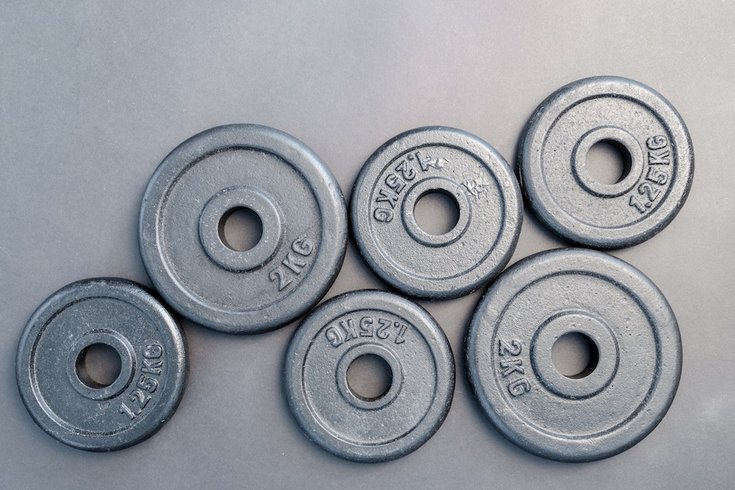
November 14, 2018
 Lukas/Pexels
Lukas/Pexels
Just one hour of weight training per week could have a huge impact on the health of your heart.
Most people have their favorite form of exercising — running, yoga or HIIT, etc. — and stick to it. While we know other forms of working out are good for you, they just don’t get you excited to workout — which is honestly half of the battle.
One workout method loved by some and dreaded by others is weightlifting, which can reduce the risk of heart attack by a whopping 40 to 70 percent, suggests a new study out of Iowa State University. According to the study, published in the Medicine and Science in Sports and Exercise journal, just 60 minutes of weight training over the course a week is all you need to reap the benefits. More time with the weights wasn’t found to provide any additional benefit.
The study, led by DC (Duck-chul) Lee, associate professor of kinesiology at Iowa State, was the first to examine resistance training and cardiovascular disease, rather than things like bone health or physical function, the Iowa State release explains. The results show that the benefits of strength training are self-sufficient in terms of other exercise like running, walking or other aerobic activity — meaning that you don’t need to meet the guidelines for aerobic activity to lower your risk.
RELATED READ: Wanna try ClassPass? Wait for this awesome Black Friday deal
According to the release, Iowa State researchers analyzed data from nearly 13,000 adults in the Aerobics Center Longitudinal Study, measuring three health outcomes: cardiovascular events such as heart attack and stroke that did not result in death, all cardiovascular events including death, and any type of death.
According to Lee, resistance training — aka weightlifting — lowered the risk of all three.
"The results are encouraging, but will people make weightlifting part of their lifestyle? Will they do it and stick with it? That's the million-dollar question," Lee said in the release.
Of course, researchers understand that while walking, running and biking are easy and affordable ways of incorporating exercise into daily life, weight training proves to be a little more challenging, the release explains. For that reason, they suggest that a gym membership would be beneficial because people would have access to everything in one place, with plenty of options to boot.
To add some perspective to the traditional idea of weight training, "Lifting any weight that increases resistance on your muscles is the key," Lee said. "My muscle doesn't know the difference if I'm digging in the yard, carrying heavy shopping bags or lifting a dumbbell."
While the research clearly shows there are cardiovascular benefits in lifting weights, there’s other health benefits, too: the researchers also examined the relationship between resistance exercise and diabetes as well as high cholesterol. The two studies, published in Mayo Clinic Proceedings, found resistance exercise lowered the risk for both.
Lee explains the reasoning for this relationship between weightlifting and the reduced risk of cardiovascular issues:
"Muscle is the power plant to burn calories. Building muscle helps move your joints and bones, but also there are metabolic benefits. I don't think this is well appreciated. If you build muscle, even if you're not aerobically active, you burn more energy because you have more muscle. This also helps prevent obesity and provide long-term benefits on various health outcomes."